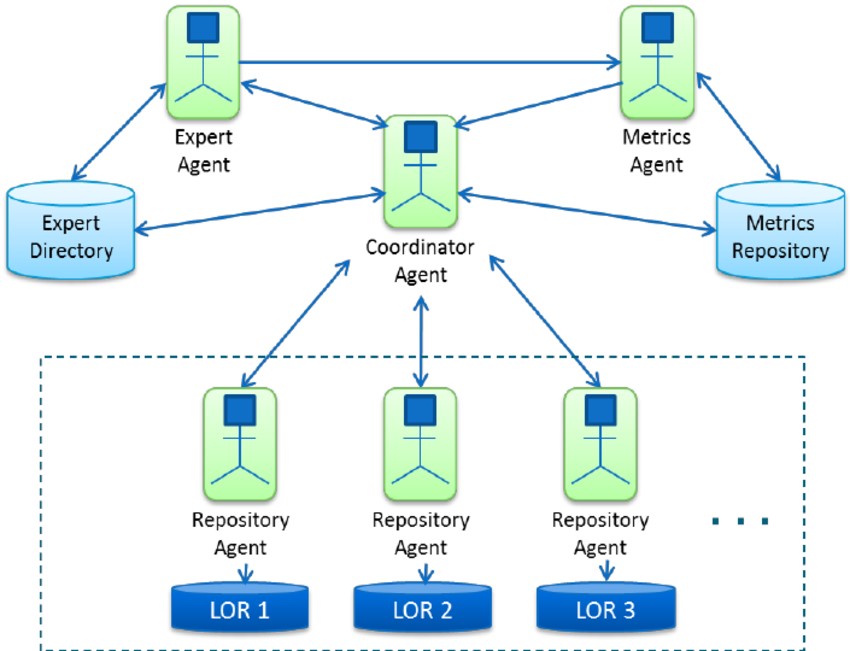OpenAI has released Swarm, an experimental AI framework intended to make the creation, orchestration, and deployment of multi-agent systems easier. This represents a major advancement in artificial intelligence. Swarm, which enables autonomous agents to cooperate, communicate, and function in complicated contexts, is a daring step forward for artificial intelligence. This framework pushes the limits of what multi-agent AI systems can accomplish, which will create new opportunities for a variety of industries, including gaming, finance, robotics, and logistics.
Lets explore Swarm's definition, significance, and potential impact on the direction of AI-driven multi-agent systems in this blog.
What is Swarm?
Swarm is OpenAI’s experimental framework aimed at simplifying the development and deployment of multi-agent systems (MAS). In the context of AI, multi-agent systems refer to environments where multiple independent agents—each with their own goals, capabilities, and strategies—collaborate or compete to achieve specific objectives. These agents are typically autonomous and operate in dynamic, complex environments.
Swarm is designed to provide an infrastructure that allows developers to easily build these agents, define how they interact, and orchestrate their activities to achieve specific outcomes. The framework is tailored to solve challenges that arise in MAS development, including coordination, communication, decision-making, and optimization.
Key features of Swarm include:
- Autonomous Agent Creation: Developers can design multiple autonomous agents, each with distinct abilities and decision-making algorithms.
- Agent Communication: Swarm includes communication protocols that allow agents to share information, strategize together, and cooperate effectively.
- Task Orchestration: The framework enables orchestration of agents to ensure that they work together in harmony toward achieving complex goals.
- Dynamic Adaptation: Swarm agents can adapt in real-time to changing environments, making the system resilient to unexpected conditions or adversarial agents.
- Scalability: The framework is scalable, meaning it can handle the addition of numerous agents without compromising performance.
Why Swarm Matters for AI
Swarm's release is noteworthy because it solves a number of serious issues that have long dogged multi-agent systems. Previously, developing such systems was frequently laborious and necessitated creating unique solutions for every situation. Agent coordination might be ineffective, and large-scale real-time adaptability was challenging to do.
By offering an extensive framework that unifies essential elements, Swarm assists in overcoming these obstacles and frees developers from having to spend as much time grappling with the intricate technical details of MAS in order to concentrate more on solving practical issues.
Swarm is a multi-agent system used in robotics, finance, gaming, and logistics. It coordinates complex tasks, models market behaviors, and optimizes logistics chains. Its advanced communication protocols enable effective collaboration, making it ideal for complex tasks like autonomous vehicle fleets. Swarm's scalability and flexibility make it suitable for large-scale applications.
Swarm technology has potential applications in various industries, including smart cities, supply chain optimization, space exploration, and healthcare. It could enable autonomous agents to work together to manage traffic flow, waste management, and supply chain operations in real-time. In space missions, autonomous agents could explore uncharted territories and conduct scientific experiments. In healthcare, swarms could coordinate AI agents to handle patient diagnostics, treatment recommendations, and personalized care plans, reducing human error and optimizing care delivery.
Challenges and Ethical Considerations
While the potential of Swarm is immense, deploying multi-agent systems on a large scale comes with challenges, particularly around safety, ethics, and governance.
Ethical Dilemmas: In environments where autonomous agents make decisions, ethical concerns such as bias, fairness, and accountability must be addressed. Ensuring that Swarm agents act ethically in areas like law enforcement or healthcare is crucial.
Security: Multi-agent systems must be designed with robust security protocols to prevent malicious interference. For instance, an adversary could manipulate agents in critical systems such as transportation or defense.
Trust: As Swarm enables more agents to operate autonomously, building trust between these systems and human stakeholders will be essential. Ensuring transparency, interpretability, and safety in their decision-making processes is key.
OpenAI's Swarm framework offers a flexible, scalable, and efficient infrastructure for multi-agent systems, tackling challenges in coordination, communication, and real-time adaptation. As OpenAI refines and expands, its adoption is expected to grow in complex environments, paving the way for more advanced AI solutions.
This release marks a new era for multi-agent AI systems, simplifying the creation, coordination, and deployment of autonomous agents. This technology is expected to revolutionize industries like robotics, logistics, gaming, and finance, making the world smarter and more connected.


